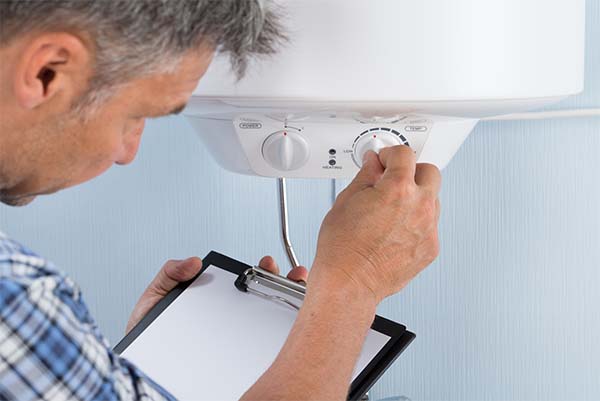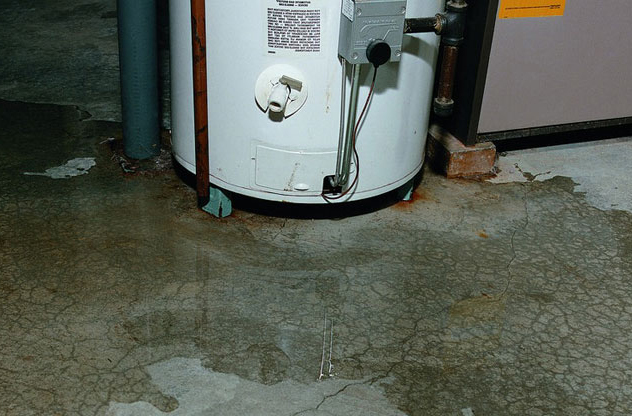Crucial Procedures for Homeowners Dealing with Issues with Faulty Water Heaters
Crucial Procedures for Homeowners Dealing with Issues with Faulty Water Heaters
Blog Article
What are your beliefs about Broken Water Heaters?

Whether it is located in the cellar or a separate area, damaged hot water heater can trigger stress. A basic device holds 80 gallons, so an overnight leak will certainly result in a flooding. This causes major residential or commercial property damages with drenched walls as well as floors. Besides, having no hot water supply is likewise bothersome. If you are handling these problems, take note of the following:
Call the Plumber
After doing the initial 2 safety and security actions, you should call your plumber to find today to deal with a fractured water heater. Remember that your device will not simply conk out considerably overnight. There are typically indicators that your aging water heater has debris buildup in the inside. Remember of the following:
Rather, as quickly as you detect these indicators, have an expert come to inspect your water heating system tank. Commonly, water heating systems have a life expectancy of concerning 8 to 12 years.
Cut Off the Cold Water Supply
Cut off the containers tap water supply from the source. When your container is in excellent problem, the cold water stops filling up when the tank is full. If you can not discover it or reach it, you need to turn off that primary water supply line outside your residential property.
Shut Down Source Of Power
Prior to calling the plumber, closed off a gas water heating unit by transforming the temperature dial. This will certainly stop electrocution, particularly if there is a leakage as water is a conductor. Normally, the heating component shuts off when the water strikes a certain temperature.
Tidy up Home
After calling the plumber, record damage by taking notes as well as photos so you can declare your home owner's insurance. From there, start the immediate cleanup. Get any type of essential personal belongings to stop more saturating. After that, eliminate any type of standing water to avoid mold and mildew development. If you have a submersible water pump, utilize that to drain the water. Otherwise, the standard container technique will additionally function. Try to mop out whatever, consisting of wall surfaces and also baseboards. Keep them running to maintain air distributing if you have an electric follower as well as dehumidifier. This will aid discourage mold and mildew development.
Keep in mind, if you see any issues with your water heater, call the pros today. You can not take this trouble gently due to the fact that a faulty thermostat can raise water temp to an alarmingly high level, resulting in unintentional burns. A damaged heater stress safety valve can likewise create an explosion. For best outcomes, obtain a yearly check so your device gets inspected, cleaned, drained, and also filled up, guaranteeing optimal performance.
After doing the very first 2 security actions, you should call your plumber to come right away to deal with a ruptured water heating system. Rather, as soon as you identify these indicators, have an expert come to evaluate your water heater storage tank. Before calling the plumber, closed off a gas water heating system by transforming the temperature dial. If you have a submersible water pump, utilize that to drain the water. Keep in mind, if you observe any kind of issues with your water heater, call the pros right away.
8 REASONS YOUR HOT WATER HEATER IS NOT WORKING & HOW TO FIX
Water Heater Problems & Solutions
Loose or Damaged In-Line Valve
Unlike a water leak near the bottom of your water tank, a water leak on top of your system can be easily fixed. A common cause of water tank leaks includes a loose in-line valve. This is a handle that is located at the top of the water tank that is engineered to activate or deactivate the flow of water. To fix this problem, you will need to secure the nut that holds the ball or in-line valve in its location. If the leak becomes more severe once it is tightened, you will be required to travel to your local hardware store to purchase a new in-line valve for your water heater.
Damaged Pressure Relief Valve
Most types of water heaters are equipped with a pressure relief valve that is engineered to discharge pressure from the water tank when it becomes too high. If this valve on top of your water heater begins to leak, we recommend purchasing a new one online or from your local store. The process of removing and replacing pressure relief valves is not complicated.
No Warm Water
If you have an electric water heater in your home, the most typical cause of a lack of warm water is a broken heating element. Your water heater is equipped with two heating elements that are tasked with heating incoming water in the water tank. Once a heating element begins to malfunction, you will have little to no hot water to use for showering, cleaning, and laundry.
Low Supply of Hot Water
Are you continuously running out of warm water? This issue may be a byproduct of a cracked dip tube. This tube is engineered to push cold water to the base of your water tank to be heated. Once a crack or hole begins to form in the dip tube, the incoming supply of cold water may be released near the top or middle of your tank. As a result, the cold water on top of the tank will be sent to the faucets and showers in your house. This hot water heater problem can only be fixed by replacing the dip tube on your system. Since the process of installing a new dip tube is complex, we recommend calling a certified technician for help.
A low supply of warm water may also be a signal of excess sediment buildup in your water tank. As your water heater reaches the middle of its life cycle, minerals in water including magnesium and calcium will begin to collect at the base of the water tank. As the minerals continue to grow, there will be less room in the water tank to store hot water. To resolve this problem, flush your water heater to remove the excess minerals.
Water is Too Warm or Cold
If the water in your shower feels uncomfortable hot or cold, you can adjust the temperature of your water by changing the settings on your thermostat. Setting the temperature to 120 degrees Fahrenheit may help you save money on your utility bills. This is an excellent temperature to use if you’re worried about scalding or skin irritation. Does this temperature feel too cold? You may also adjust the thermostat to 140 degrees Fahrenheit to make your showers more pleasant. If your hot water heater is not working when you change the temperature, this is an indicator of a broken thermostat. Immediately find a certified plumbing or heating contractor in your area to repair or replace your thermostat.
Low Water Pressure
Low water pressure is not always caused by a malfunctioning water heater. If you live in an older home with smaller water pipes, the flow of water will be restricted prior to reaching our kitchen or bathroom skins. The only way to eliminate this hot water heater problem is to connect new ¾-inch water lines to your system. Another type of problem that may negatively impact your water pressure includes calcium deposits in water pipes.
As magnesium and calcium begin to form in your pipes, the diameter of your water lines will become smaller. As a result, the warm water from your water heater will not be able to travel in an efficient manner to your sinks or appliances. Since the process of replacing water pipes includes removing drywall, an average homeowner that does not have a plumbing license will not be able to fix this hot water heater problem.
https://www.wmhendersoninc.com/blog/8-reasons-your-water-heater-is-not-working-how-to-fix/

I stumbled upon that write up on Maintaining & Draining a Water Heater when surfing the web. Sharing is caring. You never know, you could be helping someone out. Thanks a lot for taking the time to read it.
Get answers now! Report this page